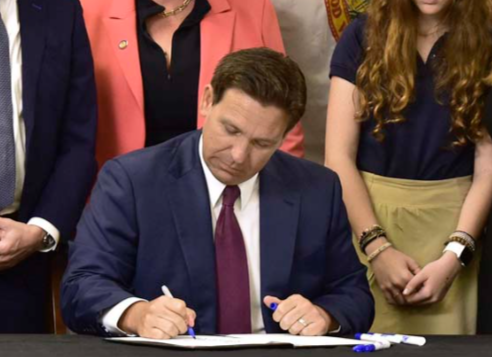DeSantis Signs Bill Banning Social Media Accounts for Kids Under 14

Gov. Ron DeSantis signed a bill on Monday that aims to restrict most kids' access to social media platforms, sparking an anticipated legal battle that could prevent the law from taking effect.
The legislation, known as House Bill 3, prohibits children aged 13 and younger from creating social media accounts and mandates platforms to identify and remove their profiles. For kids aged 14 and 15, parental consent is required to use social media platforms. Additionally, the bill blocks minors from accessing adult websites, implementing age verification requirements for all visitors.
Florida joins several other states, including California and Arkansas, in implementing such restrictions due to concerns about increasing rates of teen depression and suicide linked to social media use.
However, legal challenges have arisen in other states, with social media companies like Meta and TikTok filing lawsuits claiming that these bans infringe on children's First Amendment rights to free speech. As a result, none of these states' bans have been enforced yet.
The specifics of which platforms will be affected by Florida's law, set to take effect on January 1, 2025, remain unclear. The legislation targets platforms with "addictive features" like infinite scrolling and push notifications, where at least 10% of users are under 16 and spend at least two hours daily on the platform.
The law mandates these platforms to automatically delete accounts belonging to individuals identified as under 14 years old. Anticipating legal challenges, House Speaker Paul Renner expects the social media coalition NetChoice to file a lawsuit soon after the bill's signing.
NetChoice's vice president and general counsel, Carl Szabo, criticized HB 3 as unconstitutional and unlikely to enhance online safety for Floridians. Lawmakers also anticipate challenges to the provision barring minors under 18 from accessing adult websites, requiring such sites to implement anonymous third-party age verification methods.
Gov. DeSantis, a parent himself, emphasized the challenges posed by social media, noting previous restrictions on cellphone use in schools. While the legislation aims to protect minors online, it highlights the delicate balance between ensuring safety and respecting free speech rights. Critics argue that the bill oversteps boundaries and could face legal hurdles similar to past measures limiting access to various forms of media.